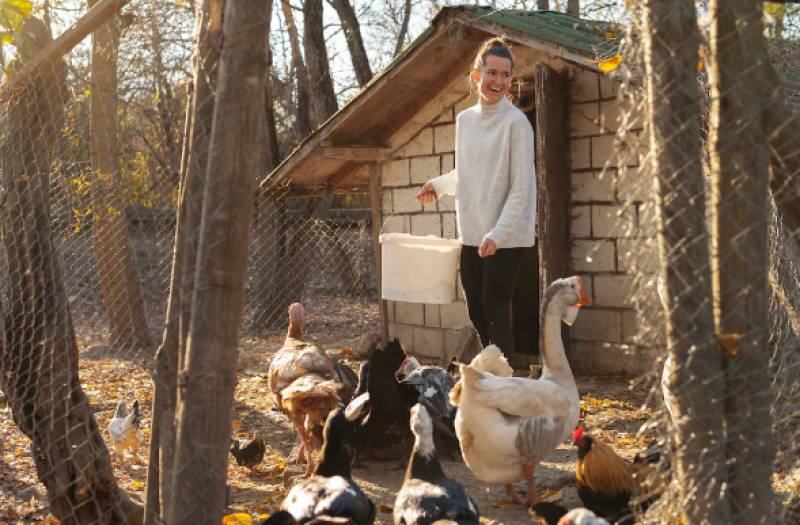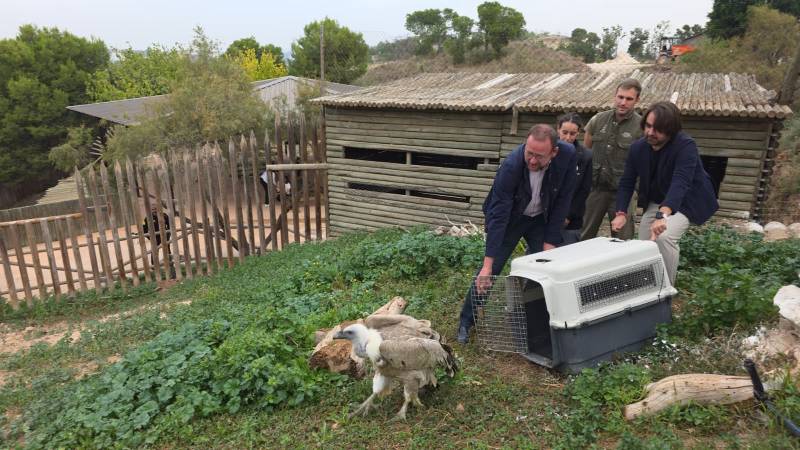
To be listed on the haciendadelalamo TODAY MAP please call +34 968 018 268.
Date Published: 19/11/2025
Murcia extends bird flu lockdown to backyard chickens
So far, no outbreaks have been reported in the Region of Murcia

Spain has ordered that professional livestock farms across the country confine their poultry to contain the spread of avian influenza, a highly-contagious disease which has already caused 105 outbreaks and led to the culling of millions of birds.
Its spread coincides with the migration season of wild birds and its effects on the poultry sector have led to led to skyrocketing egg prices in the run-up to Christmas.
In the Region of Murcia, no outbreaks have yet been detected, but last week the authorities extended the lockdown measures to farms in every municipality. Prior to this, only birds in areas considered at risk were impacted but the new measure has resulted in the confinement of another 57,000 birds from a dozen facilities in Abanilla, Bullas, Jumilla, Lorca, Torre Pacheco and Cartagena.
As bird flu continues its rapid spread across Europe, the Ministry of Agriculture has now decreed that family or subsistence farms must also lock down their birds so that they don’t come into contact with wild species. This means that rural properties and private individuals who keep chickens for their own consumption come under the same regulations as large livestock farmers.
Of course, policing every private property that keeps chickens will be impossible, but Murcia vets have stressed the importance of keeping home-raised birds confined to coops and limiting contact with them.
A virus like this one, of the H5N1 subtype, "is transmitted through the air and mutates very quickly, so it can end up affecting humans," warned Teresa López, president of the Official College of Veterinarians of the Region of Murcia. She reminded people with birds at home of their obligation to register these animals in the General Registry of Livestock Farms so that the regional government can monitor them.
If these birds are not registered with the authorities, "there are no controls," and that is dangerous "because the mortality rate is 25%" and there is a risk that "the virus will recombine and affect a family."
This has already happened with the infection of several mammal species in Europe, as well as on other continents.
Last week, the regional Ministry of the Environment carried out a census of waterfowl throughout the Region, a study in which no mortality was reported. Throughout 2025, 43 samples have been sent for analysis, all of them negative, pending the results of the last five.
Image: Freepik
Loading
See more news about animals in Spain:
OR
Sign up for the Spanish News Today Editors Roundup Weekly Bulletin to get a comprehensive email with all the week’s news for Spain, Murcia, Alicante and Andalucía.
Get a sneak peek – here are a few of our recent Subscription Bulletins:
Discount Special Offer subscription:
36.95€ for 48 Editor’s Weekly News Roundup bulletins!
Please CLICK THE BUTTON to subscribe.
Contact Murcia Today: Editorial 000 000 000 /
Office 000 000 000







































